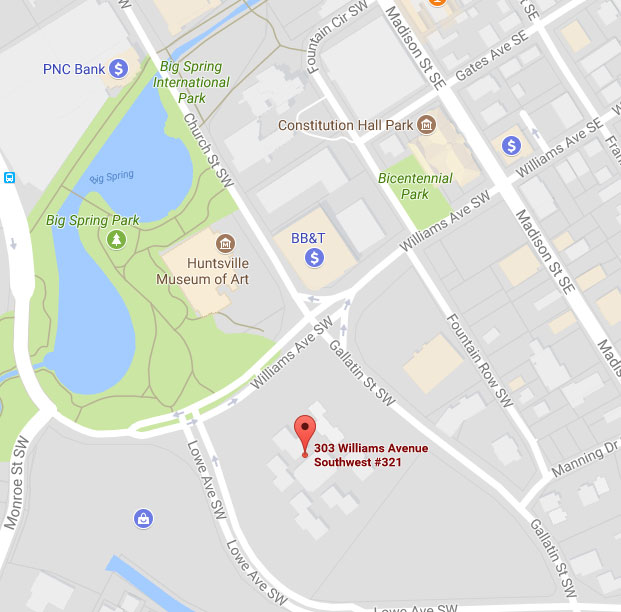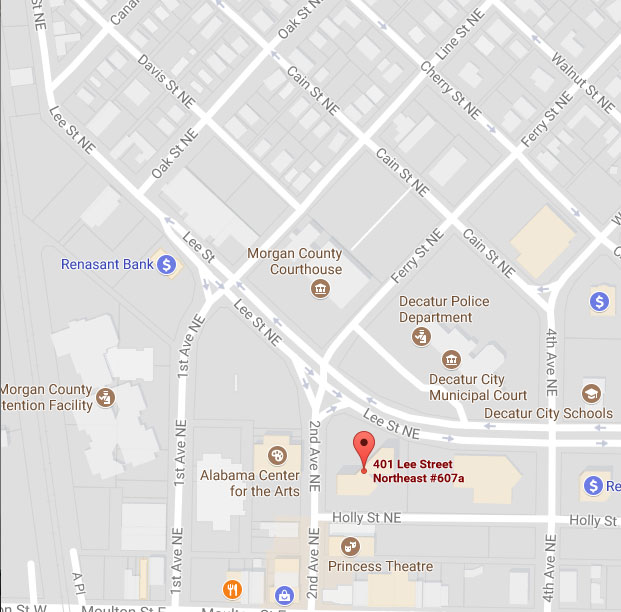Automobile Accident Information And Things To Do
Alabama Automobile Accident Information
More detailed information such as is listed below would be helpful to us in working on your case. We are able to get most of this information during our investigation of the case, although you may get some of the information at the scene:
• Who were the drivers of the vehicles involved?
• Did all automobile drivers have driver’s licenses? Be sure to get the driver’s license numbers, state and addresses of the drivers!
• Did any of the automobile driver’s appear to be under the influence of alcohol or drugs? (Write down who and why you think they were and who else observed that same thing. After the effects wear off it would be your word against theirs.)
• Were any passengers in the vehicles? Get their names and addresses!
• Were any pedestrians involved in the automobile accidents? Get their names and addresses! •Did any person involved in the accident report any personal injury shortly after the accident? Who are they, and where do they live?
• Was medical assistance rendered at the scene of the accidents? •What personal injury did the injured person report? Did anyone say “I’m not hurt”? •What was the actual location of the accident?
• Were there any witnesses to the accidents (other than those directly involved in the accident)? Get the names, addresses, and telephone numbers of all witnesses!
• In what direction were the vehicles traveling just prior to the accident?
• At what time of day did the accident occur? •What were the weather conditions at the time of the accident?
• Was there anything “wrong” with the vehicles before the accident, such as driving with a broken headlight at night, or with bald tires? •Was there any damage to the vehicles as a result of the accident? (Even if there wasn’t, that does not mean that someone may not have been injured, even with a “soft tissues injury”.) What parts of the vehicle were damaged?
• Who were the registered owners of the vehicles (names and addresses)?
• Were all vehicles involved in the accident insured? What are the names of the insurance companies and the policy numbers? (If they said how much insurance they had, record that too.)
• Did any of the vehicles need to be towed from the scene of the accident?
• How did the accident occur?
• Did anyone accept responsibility for the accident, such as by saying “It was my fault, I am sorry. I was speeding / not paying attention / not wearing my glasses / distracted / tired / late for work / in a hurry / my coffee had just spilled … etc.”? If so, write it down.
• Did anyone else say something to indicate that s/he too was at least partially at fault — such as “I should have seen you but I was on my cell phone / I’ve been taking these pills / my eyesight isn’t what it used to be after dark, etc”?
• Did the police come? If so, did they issue anyone a ticket? Which officers were present? Driver’s license number. Make note if it appeared the driver had been drinking.
• Note and try to write down everything the other driver said. Names and addresses of passengers in other cars Try to find people in the vicinity who may have seen the accident and ask for their name and phone number.
• Position of your vehicle Position of any other vehicles Location of any tire marks, vehicle parts, glass, and other debris caused by the accident that is in the vicinity
• Location of point of impact Road conditions Traffic conditions Weather conditions
• If you have a camera, take pictures of the site of the collisions, and the vehicles involved……It would be extremely beneficial to you to carry a disposable camera with a flash in your car at all times, so that if you are in an accident you can accurately document the incident. Date and time of accident Location of accident
• Speed of your car just before the accident Direction of your car and other cars)involved in the accident If either car was turning If the car turning have its turn signal on Were headlights turned on in both vehicles (if it is night)
Following an accident, the single most important thing you can do to protect yourself is to copy down the license plate number of the other vehicle involved. Sometimes the person driving the car does not own the car. You may think that you have protected yourself by obtaining the driver’s license information of the other driver, but this is often not sufficient. By writing down both the driver’s information and the license plate of the vehicle, you have worked to more thoroughly protect yourself and ensure that you have obtained all the information that you might need in the event of litigation. If a police officer has come to the accident scene, be sure to ask if a report of the accident will be prepared and where and when it will be available. If the officer does not intend to prepare a report, be sure to request the officer’s name and badge number for later contact. Take pictures of your vehicle as soon as possible. Take pictures from all angles, not just the damaged portions. If possible, take pictures of the other vehicle(s) involved in the accident. Take pictures of the surrounding area to preserve the way it looked at the time of accident. Take pictures of the surrounding location and roadway for any physical damage, skid marks, or debris. If you or someone in your vehicle sustained a visible injury: i.e, bruise, cut, scrape, or stitches, take photograph(s) of the injury to preserve the state of the injury at the time of the injury. Feel free to take as many photographs of what you think may, no matter how trivial, be important to the accident. Your attorney will decide what is and what is not important. If you were a pedestrian, take photos of the crosswalk or the location where you crossed at street or where you were standing, walking, jogging, at the time of your accident. Take the name, address and telephone number of any potential witness and save this information someplace where it will not be lost. Return to the accident scene, visit any nearby homes or business for any potential witness(es) to the accident. Revisit the scene of the accident several times at the same time at which the accident took place. Some people may have a habit of visiting, stopping, driving, etc, by the location of the accident as part of their normal daily routine. You may able to find a witness. If you have obtained witness information, do not contact or speak to the witness(es) again. Do not try to solicit a written statement and/or drawing from the witness. Let your attorney contact any possible witness(es). After taking photographs of your damaged vehicle, take the vehicle for a repair estimate as soon as possible. You are not obligated to use a repair facility recommended by an insurance company to have repairs done, but it generally won’t hurt to get estimates from recommended garages.
Obtain written and dated repair estimates from a minimum of two repair facilities, at least one of which you selected without insurance company suggestion. Notify police and if necessary, an ambulance immediately. Make no statements to anyone except a police officer. Do not admit fault or liability. Obtain all names, addresses, phone numbers and license plate numbers involved in the accident. Obtain the names and phone numbers of all witnesses. If you have a camera, take pictures of all cars and people. Notify your insurance company of your accident. Give no recorded statement to any insurance company, yours or theirs, before contacting an attorney. Obtain the name, address and telephone number of the other driver, as well as the name of his/her insurance company.
Have the local police department come to the scene of the accident and if there has been any property damage or injury, request an accident report. The police officer will write and file a report as to how the accident happened, as well as listing the names and addresses of witnesses and those involved in the accident. If a police officer can not come to the accident scene, then you should report the accident to the nearest police station in the community where the accident happened. In your report to the police or your comments to others you should not try to determine who was responsible for the accident; only explain how the accident happened. Let the police determine who was responsible for the accident. In the event of a bodily injury, do not give a recorded statement to any insurance company, including your own, until you have consulted an attorney. As soon as possible after the accident, contact your insurance company or insurance agent. It is important to give your insurance company notice of the accident so you can qualify for the property damage, medical and other benefits to which you may be entitled under your policy. Your insurance company has a duty to provide a legal defense if you are sued as a result of an accident.


